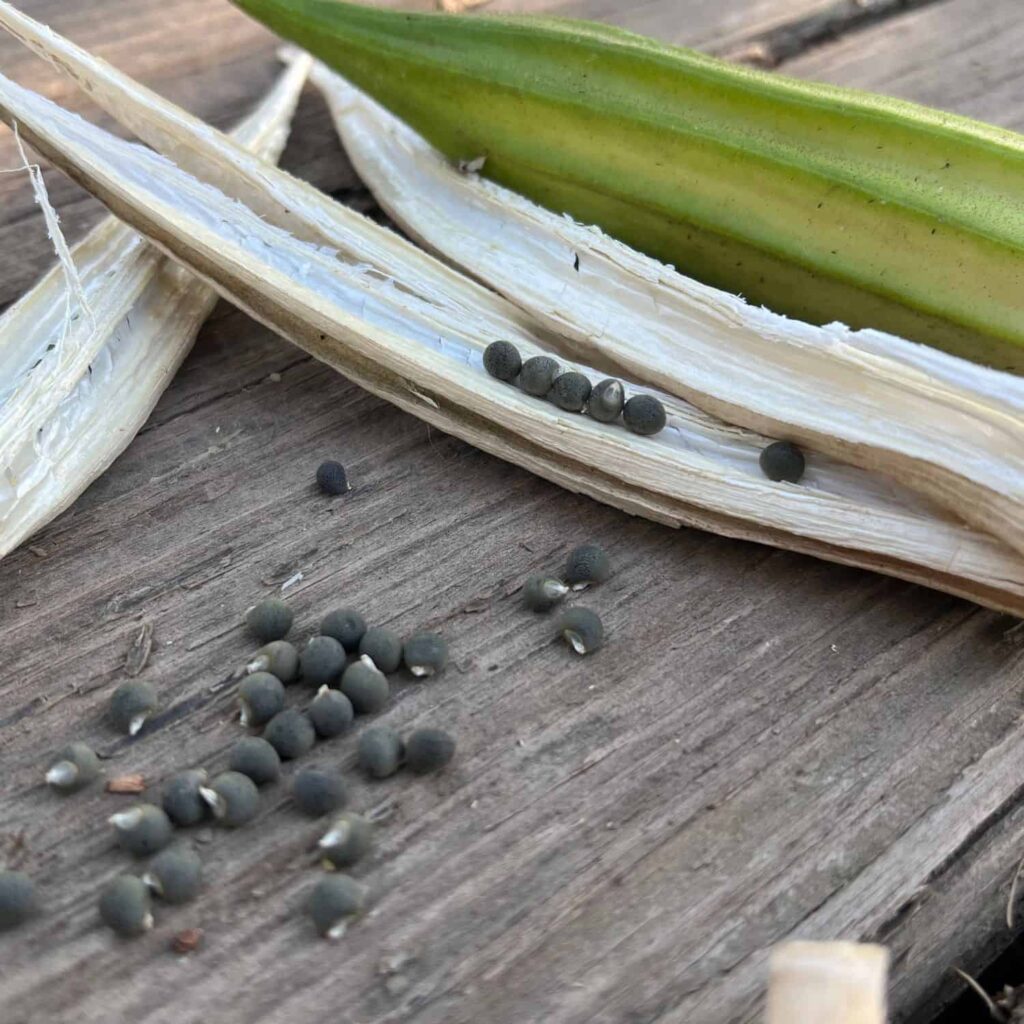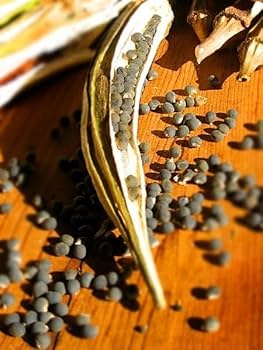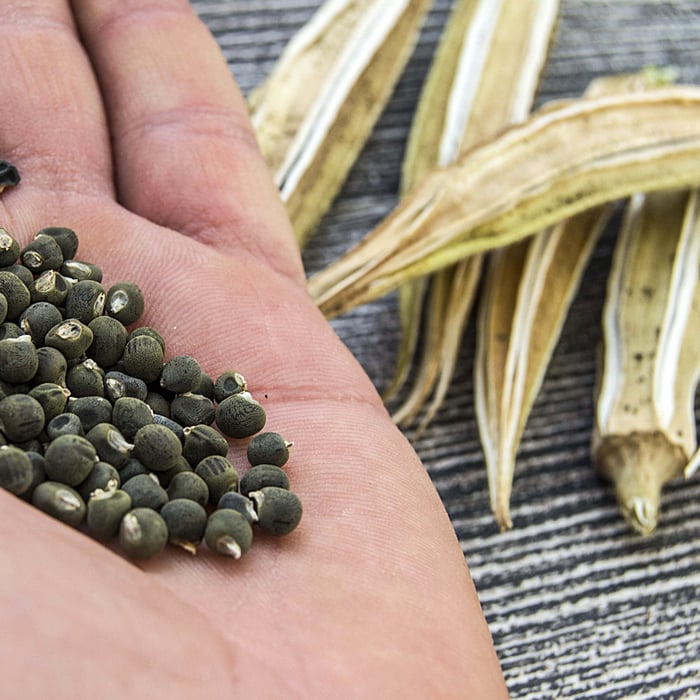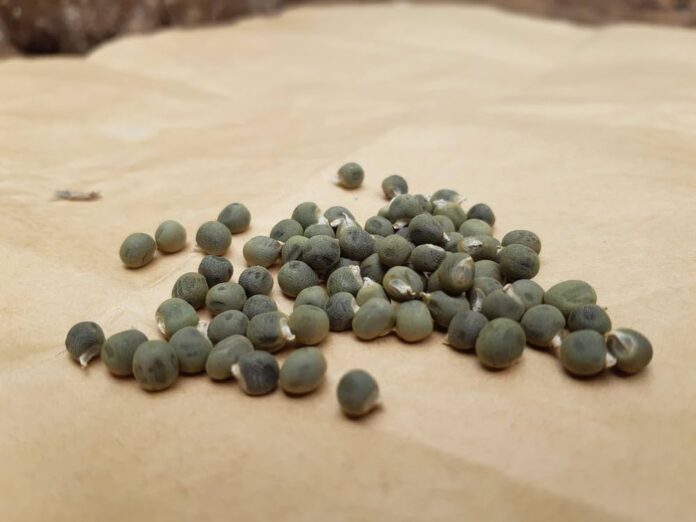INTRODUCTION:
Ladyfinger seeds are the seeds of the okra plant, a warm-season flowering plant from the mallow family, native to East Africa. Grown for its edible, elongated green seed pods (also called lady’s fingers or bhindi), these seeds are sown to cultivate plants that provide a nutritious vegetable rich in fiber, vitamins, and minerals, which are used in diverse culinary dishes globally.

English: Okra Seeds / Lady Finger Seeds
Hindi: भिंडी के बीज (Bhindi ke beej)
Urdu: بھنڈی کے بیج (Bhindi ke beej)
Bengali: ঢেঁড়সের বীজ (Dherosher beej)
Gujarati: ભીંડા ના બીજ (Bhinda na beej)
Marathi: भेंडीची बियाणं (Bhendichi biyān)
Punjabi: ਭਿੰਡੀ ਦੇ ਬੀਜ (Bhindi de beej)
Odia: ଭିଣ୍ଡି ବୀଜ (Bhindi bija)
Arabic: بذور البامية (Buthur al-bamia)
HEALTH BENEFITS:

Rich in Nutrients
Contains vitamins A, C, K, and B-complex
Good source of calcium, potassium, magnesium, and iron
Improves Digestion
High in dietary fiber
Prevents constipation and promotes gut health
Helps Control Blood Sugar
Slows down sugar absorption
Supports diabetes management
Supports Heart Health

Lowers bad cholesterol (LDL)
Reduces risk of heart disease
Boosts Immunity
High in antioxidants and vitamin C
Strengthens the immune system
Good for Skin and Eyes
Rich in vitamin A and antioxidants
Promotes clear skin and good vision
Supports Pregnancy
High in folate (vitamin B9)
Helps in fetal brain and spine development
Aids in Weight Loss
Low in calories
Keeps you full longer due to fiber
SIDE EFFECTS:

Gastrointestinal Distress:
Okra contains fructans, a type of carbohydrate that can cause gas, bloating, cramping, and diarrhea, especially for those with irritable bowel syndrome (IBS).
Kidney Stones:
Okra is high in oxalates, which can contribute to the formation of kidney stones, particularly in people who have had them before.
Inflammation & Joint Pain:
The presence of solanine, a compound also found in nightshade plants, may worsen joint pain and inflammation in individuals with conditions like arthritis.
Medication Interactions:
Okra is a good source of Vitamin K, which can interfere with the effectiveness of blood-thinning medications.
Diabetes Medication Interference:
Some studies, though primarily in diabetic rats, suggest that okra water can block the benefits of a common diabetes medication, Metformin.
HOW TO USE:
1.For Health Use (Medicinal/Traditional)
Okra seeds are used in some cultures for their potential health benefits:
Roasted Okra Seeds (like coffee):

Dry roast the seeds and grind them.
Brew as a caffeine-free coffee substitute.
Claimed to help in managing diabetes and fatigue.
Powder Form:
Dried seeds can be powdered and added to smoothies or warm water.
Sometimes used in traditional medicine for blood sugar control.
2.For Cooking (Less Common but Used)
In some regions, mature okra seeds are:
Toasted and eaten as snacks
Pressedforoil – okra seed oil is rich in unsaturated fats
3.For Planting (Cultivation)
If you’re growing okra, use the seeds this way:
Soil Preparation:
Use well-drained, loamy soil with a pH between 6.0 and 7.5.
Seed Soaking (Optional):
Soak seeds in warm water overnight to soften the seed coat and improve germination.
Sowing:
Sow seeds directly into the soil, about 1–2 cm deep.
Keep a spacing of 30–45 cm between plants.
Ideal temperature for germination: 25–35°C (77–95°F).
Watering:
Water regularly but avoid overwatering. Keep the soil moist until germination.
Germination Time:
Usually takes 5–10 days.
PRECAUTIONS:
Use only clean, healthy okra seeds.
Store them in a cool, dry place.
Don’t eat too many seeds without asking a doctor.




